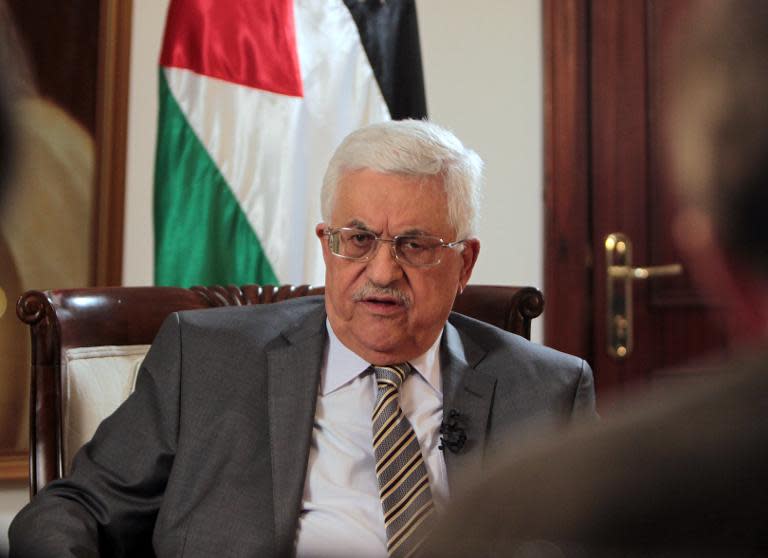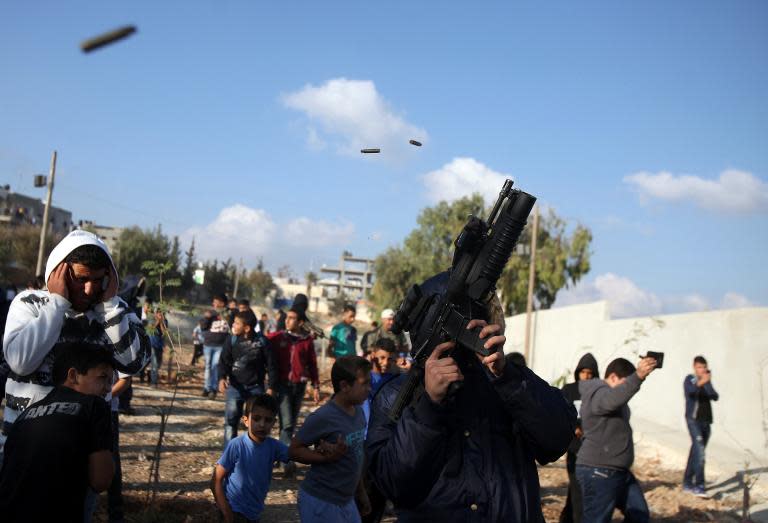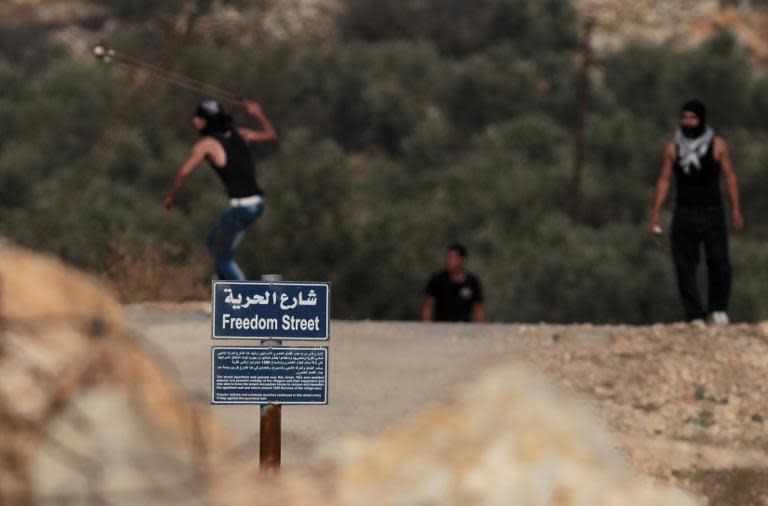Abbas to AFP: peace talks will run full course
Peace talks with Israel will continue for the full nine months agreed with Washington "regardless of what happens on the ground," Palestinian president Mahmud Abbas told AFP on Sunday. He also called for an international probe to determine who killed Yasser Arafat after scientists said it was likely he had been poisoned. Abbas was speaking in an exclusive interview at his Muqataa headquarters in Ramallah a day ahead of a key visit by French President Francois Hollande for talks expected to focus on the peace process. In the interview, he reaffirmed his commitment to push ahead with the US-backed talks, despite a major upset over Israeli settlement building. "We have committed to continue the negotiations for nine months, regardless of what happens on the ground," he told AFP. "We are committed and we will go to the full nine months, and then we will take the appropriate decision," he said, without elaborating. After months of intensive shuttle diplomacy by US Secretary of State John Kerry, Israel and the Palestinians finally agreed to begin direct talks in late July with the ambitious aim of reaching an agreement within nine months. As part of the deal which brought the two sides back to the table, the Palestinians agreed to suspend all efforts to seek international recognition for the duration of the talks. Israel agreed to release 104 veteran Palestinian prisoners in stages, and also reportedly agreed to rein in its settlement building. But over the past three months, Israel has announced plans to build thousands of new settler homes on land the Palestinians want for their future state, sparking a chorus of furious denunciations from Ramallah. On Tuesday, Israel said it would build 20,000 more settler homes in its biggest ever announcement, although the move was swiftly overturned by Israeli Prime Minister Benjamin Netanyahu. Resignation not formally accepted A day later, the Palestinian negotiating team led by Saeb Erakat resigned in protest although their resignation was never formally accepted by Abbas. "The delegation to the talks handed in its resignation which we have still not accepted," he told AFP, saying the leadership had not yet decided what to do about it. "The Palestinian people know that the way to peace is through negotiation. But they also know we are insisting on Palestinian constants," he said -- namely an agreement based on the lines which existed before the 1967 Six-Day War, east Jerusalem as the capital of the future state, and resolution of the issue of the Palestinian refugees who fled or were forced out of their homes when Israel was established in 1948. "That is what the Palestinian people are asking us to get from the Israeli side. If we don't get that, we won't sign anything," he said. Turning to the mysterious death of Arafat in 2004, Abbas demanded an international inquiry to determine who was responsible for killing him after Swiss laboratory experts suggesting he had been killed by polonium poisoning. "We have indications that president Yasser Arafat did not die of old age nor of illness but that he died of poisoning," he said, summarising conclusions publicised earlier this month by Swiss and Russian scientists who ran forensic tests on the veteran leader's remains. "There are indications he was poisoned, so who poisoned him? And who sent the poison? This needs investigation. "That is why we are demanding an international inquiry, like the one France demanded for (the murder of Lebanon's former premier) Rafiq Hariri, to discover who killed Yasser Arafat," Abbas said. Arafat died at the age of 75 in a hospital near Paris on November 11, 2004 after falling sick a month earlier. Doctors were unable to specify the cause of death and no post-mortem was carried out. Palestinian society has long given currency to the rumour that Arafat was murdered, with the finger of blame most often pointed at Israel. But Abbas said the Palestinians could not blame Israel without proof. "We cannot accuse Israel without holding a trial," he said. Israel has categorically denied any involvement in Arafat's death, with a foreign ministry spokesman saying the Palestinians should "stop levelling all these groundless accusations without the slightest proof".





